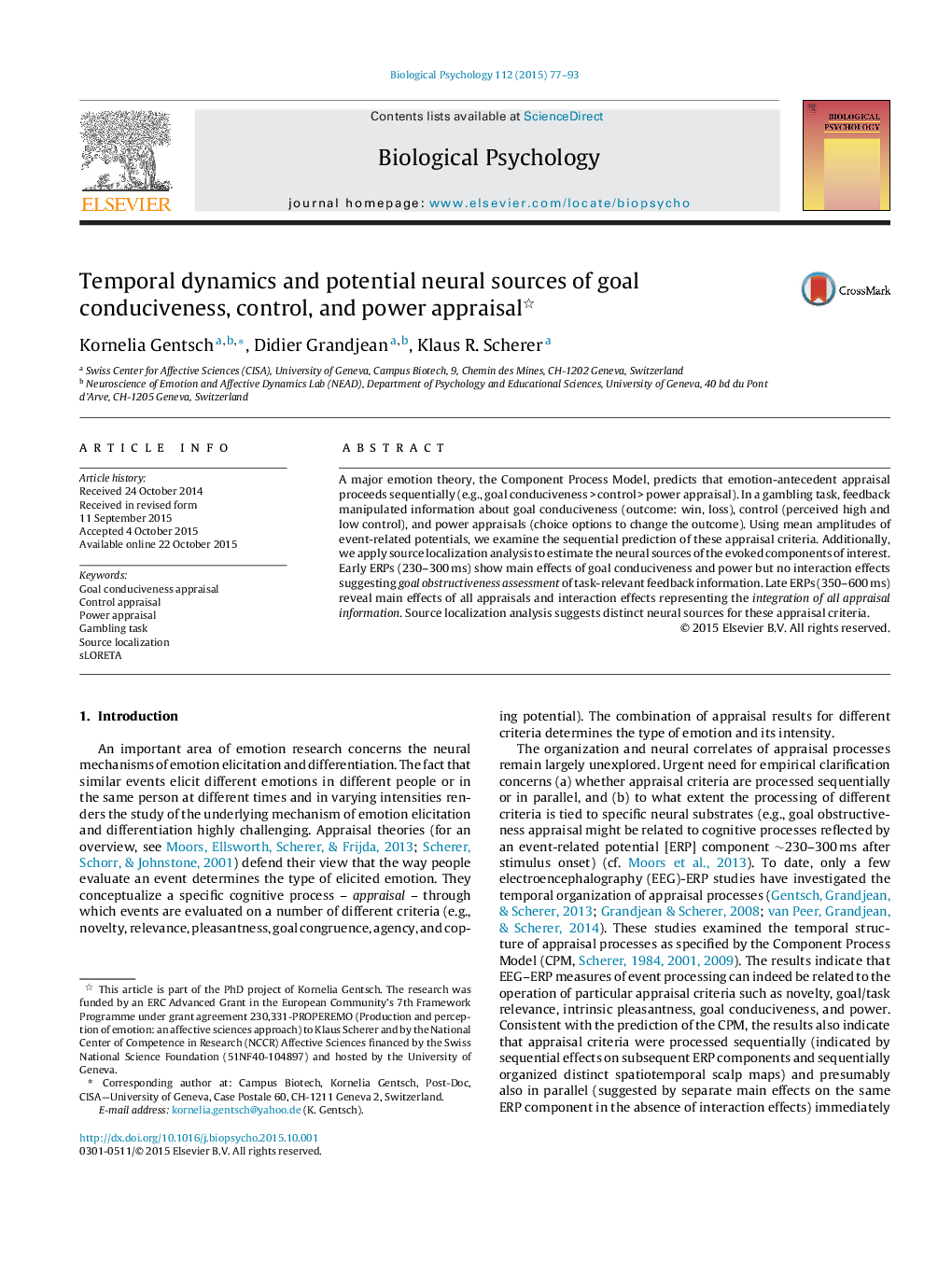| Article ID | Journal | Published Year | Pages | File Type |
|---|---|---|---|---|
| 920779 | Biological Psychology | 2015 | 17 Pages |
•Extended testing of sequence hypothesis of the component process model of emotion.•New is added operationalization of control appraisal in an ERP study.•Early ERPs suggest goal obstructiveness assessment of task-relevant information.•Subsequent ERPs may indicate appraisal of all information and their integration.•Source localization analysis revealed distinct neural sources of appraisal criteria.
A major emotion theory, the Component Process Model, predicts that emotion-antecedent appraisal proceeds sequentially (e.g., goal conduciveness > control > power appraisal). In a gambling task, feedback manipulated information about goal conduciveness (outcome: win, loss), control (perceived high and low control), and power appraisals (choice options to change the outcome). Using mean amplitudes of event-related potentials, we examine the sequential prediction of these appraisal criteria. Additionally, we apply source localization analysis to estimate the neural sources of the evoked components of interest. Early ERPs (230–300 ms) show main effects of goal conduciveness and power but no interaction effects suggesting goal obstructiveness assessment of task-relevant feedback information. Late ERPs (350–600 ms) reveal main effects of all appraisals and interaction effects representing the integration of all appraisal information. Source localization analysis suggests distinct neural sources for these appraisal criteria.
